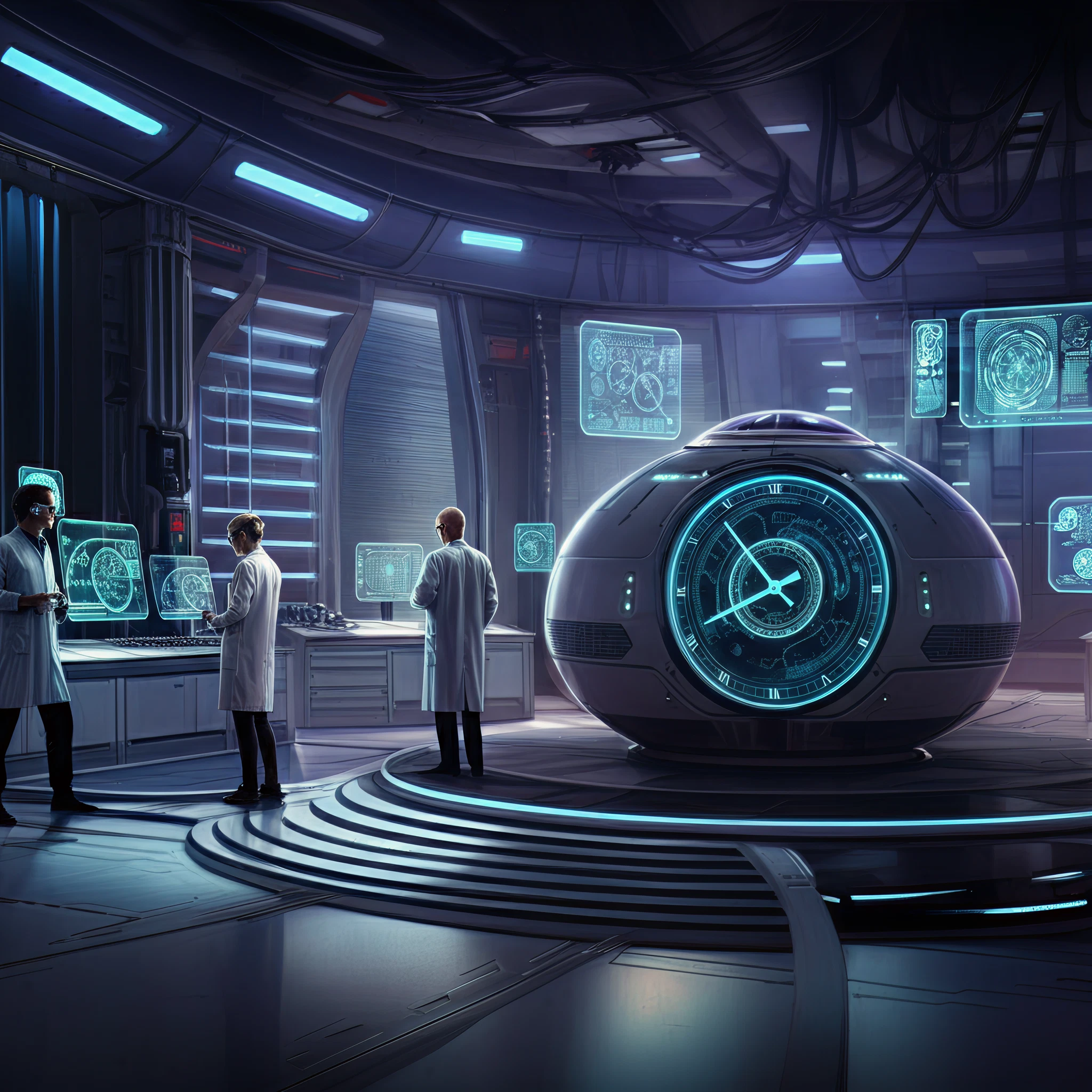Time travel has long remained a concept rooted in science fiction and a topic of wonder and debate among scientists and enthusiasts. While theories and stories about time travel have intrigued people for more than a century, recent developments in theoretical physics claim that time travel might not just be a fantasy after all.
With the backing of Einstein’s groundbreaking work, quantum mechanics, and some mysterious historical oddities, more researchers today are contemplating the possibility of time travel. Could these findings indicate that time travelers walk among us? Here’s what we know.
The Science Behind Time Travel
Einstein’s Theory of General Relativity
One of the most significant pieces of evidence supporting the possibility of time travel comes from Albert Einstein’s Theory of General Relativity. Einstein proposed that time is not a fixed constant but is relative and can be influenced by speed and gravity. According to his equations, the fabric of spacetime bends around massive objects like stars and black holes, creating “time dilation.”
For humans, this could mean that traveling close to the speed of light or being near a powerful gravitational field could allow us to experience time more slowly than someone farther away from such conditions. Theoretically, this could allow us to “travel” into the future.
Quantum Mechanics and Entanglement
Quantum physics takes the discussion of time travel to an even stranger level through the phenomenon of quantum entanglement. Two particles can become entangled so that the state of one instantaneously affects the state of the other, even when separated by vast distances. While this doesn’t directly imply time travel, it challenges our understanding of how causality works across space and time.
Similarly, the Delayed-Choice Quantum Eraser Experiment suggests that actions taken in the present can retroactively influence outcomes observed in the past at the quantum level. While this operates on a microscopic scale, it raises fascinating questions about the nature of time and reality.
Paradoxes of Time Travel
With the possibility of time travel comes the famous “grandfather paradox.” This thought experiment questions what would happen if a time traveler went back and prevented their grandfather from meeting their grandmother. If they succeed, they could never have been born, and therefore could not have traveled back in time in the first place. How do physics account for such contradictions?
Some theoretical physicists propose solutions like the “many-worlds interpretation,” which suggests that every decision results in a branching of parallel universes. Essentially, interfering with past events might create alternate timelines rather than altering the original one.
Historical Mysteries and Alleged Time Travelers
If time travel is indeed possible, is there evidence that people have already traveled through time? Here are some cases worth discussing:
- The Philadelphia Experiment (1943): A naval experiment allegedly rendered the USS Eldridge invisible and transported it temporarily through time. While historians discount the story, conspiracy theorists believe it was a military breakthrough in bending spacetime.
- John Titor (2000): A man claiming to be a time traveler from the year 2036 appeared in internet forums, offering detailed descriptions of how time travel technology works. While skeptics dismiss him as a hoax, Titor’s accounts still intrigue many.
- Unexplained Historical Images: Several photos and artifacts have fueled time travel speculation, like the “time-traveling hipster” seen in a 1941 photo, who appears oddly out of place, wearing sunglasses and modern clothing.
The Cultural Impact of Time Travel
The concept of time travel has profoundly shaped our collective imagination through literature, television, and film. From H.G. Wells’ “The Time Machine” to blockbuster franchises like “Back to the Future” and “Avengers,” time travel has inspired generations of sci-fi enthusiasts and creative thinkers.
Interestingly, many scientists today admit that early exposure to such fictional works encouraged them to explore the possibilities of time travel within scientific frameworks.
The Real Challenges Ahead
Despite the compelling theories and fascinating stories, achieving practical time travel remains a monumental challenge. For one, time travel as suggested by general relativity would require technology and energy levels far beyond anything we currently possess. Additionally, harnessing quantum mechanics to influence macroscopic systems like human beings seems a distant dream.
Furthermore, the ethical implications of manipulating time raise serious concerns. Could altering events lead to unintended catastrophes? Would access to time travel be misused? These are questions scientists and policymakers must grapple with before time travel becomes anything more than theoretical.
Closing Thoughts
While scientists confirm that time travel is theoretically possible, practical application remains a significant hurdle. For now, time travel exists at the fascinating intersection of science, imagination, and mystery. Whether we are years away from a breakthrough or simply dreaming of the impossible, the notion compels us to expand our understanding of the universe and our place within it.
Could time travelers be among us already? If so, they embody the curiosity and ingenuity that continue to drive humanity forward.








